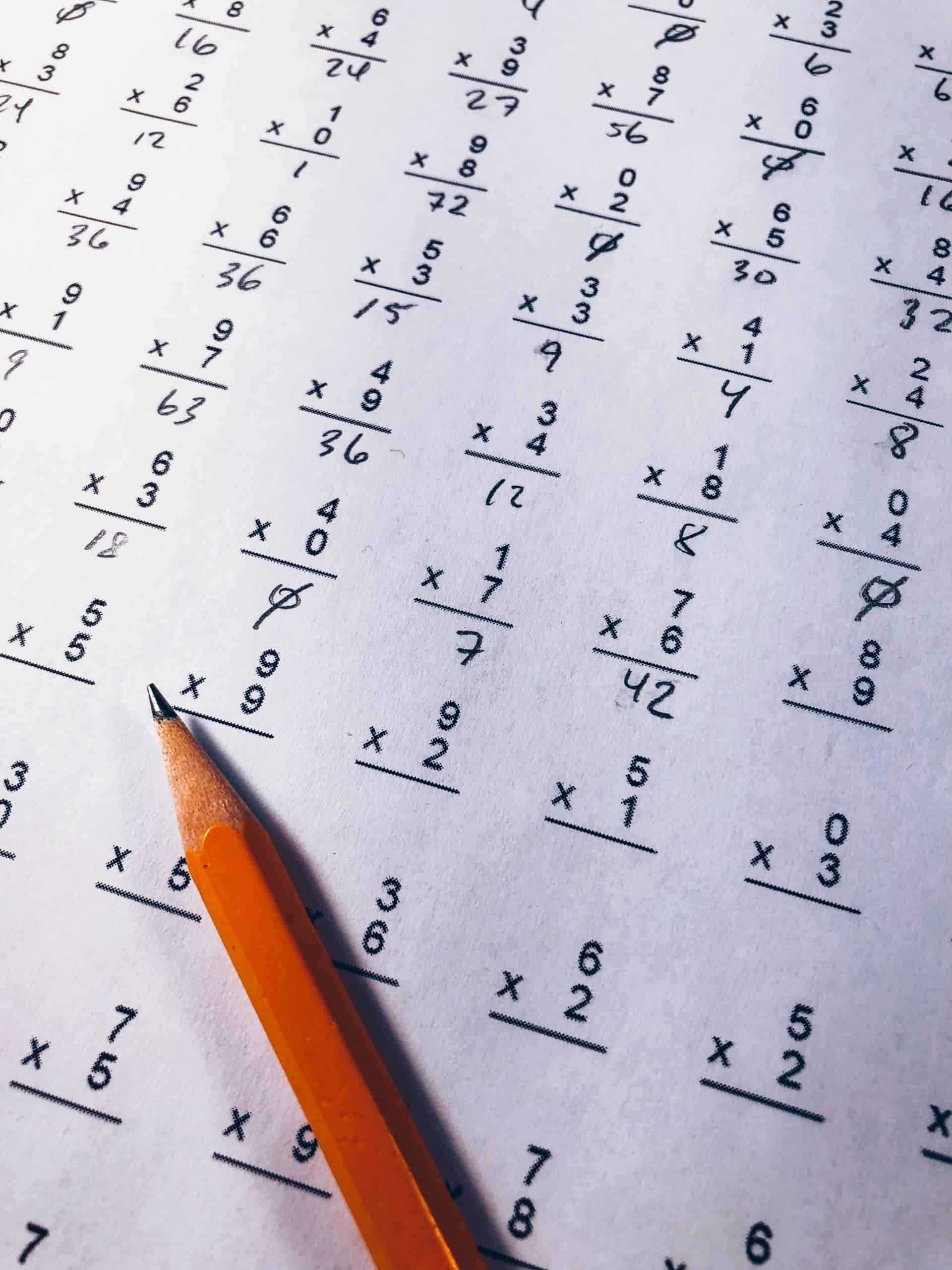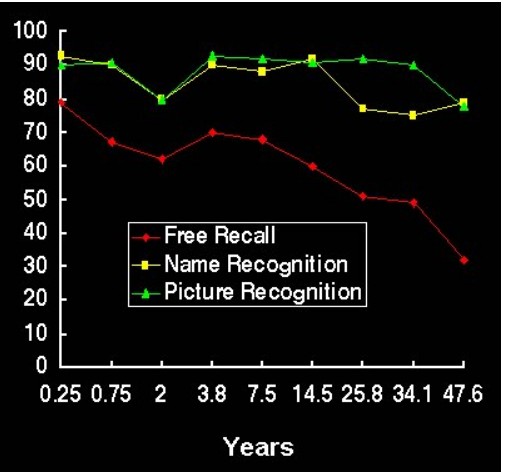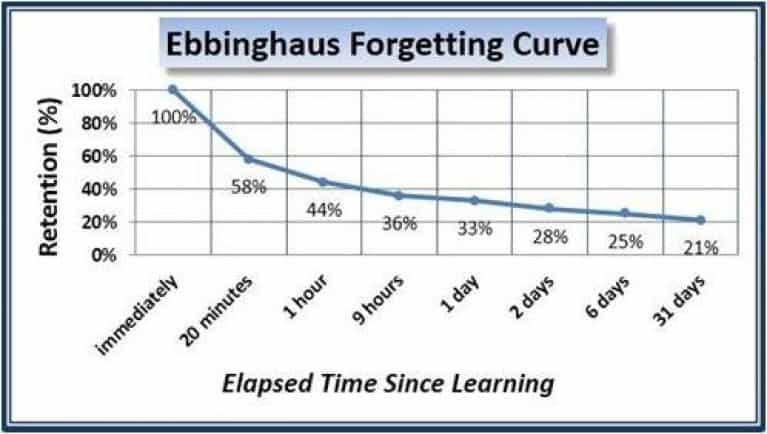What Is Smart Learning and How to Apply It to Become a Better Learner

Contrary to popular belief, not all learning leads to enlightenment and self-development. Oftentimes, lousy learning practices can lead to the contrary. Instead of acquiring in-depth and meaningful knowledge, you end up learning random and superficial pieces of information of questionable credibility.
In other words, stupid learning can turn out to be a waste of time, whereas smart learning will, unsurprisingly, make you smart. As such, it should be a priority for any self-respecting student or professional.
Unfortunately, most people learn by feel. Partly because of the undisciplined approach to knowledge acquisition and somewhat because smart learning has become a bit of a trite slogan in recent years. We all know we should do it, but hardly anyone knows what it is.
Let's tackle this topic step by step.
What is smart learning?
There are 5 key traits that characterize smart learning.
1. Optimizing your reviews
If you still haven't got the news. We have known for over 140 years that optimizing reviews allows us to slow down memory decay. About that time, a brilliant German psychologist Hermann Ebbinghaus proved that we could significantly slow down memory decay by revising the learning material at the right moment.
The famous Ebbinghaus Forgetting Curve depicts this phenomenon.

You would think that 140 years is plenty of time, but I assure you it's not. The concept of optimizing your reviews is still relatively unknown. Spaced Repetition Software, which allows you to revise learning material at the optimal intervals automatically, is nowhere to be found in public schools or at universities. Yes, there are exceptions, but they are few and far between.
Keep in mind that using programs like ANKI is not the ultimate solution. Yes, using it will certainly make you a better learner than about 70% of the population.
However, what makes it really effective is using it correctly, i.e., applying the right learning methods while reviewing information in ANKI. Spaced repetition algorithms are your white canvass, but you also have to know how to paint to get the best effects.
Read more: Why most spaced repetition apps don't work and how to fix it
2. Choosing the right learning materials
There are 2 types of sources of information:
- Primary sources
- Secondary sources
(1) Primary sources
Primary sources refer to previously established scientific facts (e.g., math, physics, and chemistry textbooks) or firsthand, fundamental research that is based upon observations or experiments (e.g., research articles in journals).
(2) Secondary sources
Secondary sources or secondhand sources refer to any learning resource which loosely relates to the primary resources and/or interprets them in a certain way (e.g., interviews, YT videos, etc.).
Roles of both sources of information
Both types of sources can be very useful in learning. The first one provides you with the certainty that the information you acquire is true.
Secondary sources, on the other hand, can help you make sense out of that information.
Sometimes hearing somebody's opinion on some matter can help you connect the dots and arrive at the right conclusion.
Always prioritize primary sources
As long as you focus on relentlessly acquiring knowledge from the primary sources, you can rest assured that your expertise will keep on growing and will be of the highest quality.
The problem arises when you try to derive a big chunk of your knowledge from secondhand sources. It always means one thing — you suspend your right to have any meaningful opinion.
You scarf down any crap which people dish out. And make no mistake. There are very few people who put in time and effort to really learn something.
Most simply regurgitate different anecdotes and old wives' tales to boost their ego.
Unless you prioritize learning from the primary sources, you will never be able to tell what's true and what's not.
Trust the facts, not the experts. Way too many people have their own agenda and have no problem with profiting from the naivety and ignorance of the others.
If you want to see for yourself how wide-spread that behavior is, go ahead and look up some popular language-learning websites. You will be lucky to find even one quotation on most of them.
As Dr. Johnson so wisely observed, truth is hard to assimilate in any mind when opposed by interest. Moreover, strong feelings about issues do not usually emerge from deep understanding and knowledge.
3. Knowing what you can forget

I have stated many times that if you want to be excellent in your area of choice, you need to remember tons of information and know how to connect in a meaningful way.
However, it doesn't mean that you literally have to suck in everything. With all due respect to the hard-working scientific community, when I read medical or memory studies, I rarely care who has written them. I won't waste any brainpower to remember it.
Why? Because ANKI is also a browseable database! If I need to look up the authors of a certain study, I can get this information within seconds.
You should always try to separate the worthwhile from the wooly.
It won't always be obvious to establish what's relevant and what's not. Sometimes only time will tell. There were times when I started memorizing random stuff only to realize after some time that I don't need to know it by heart.
In other words, figuring out what's worth memorizing requires some trial and error, and it's heavily dependent on the depth of knowledge you want to acquire and on the conditions you will retrieve it in.
Definitely, one important criterion which can help you guide this decision process is choosing whether you want to master a certain discipline or be decent/good at it.
Personally, I wouldn't decide to learn a lot of scripts or commands by heart if I was just programming for fun. However, if you want to learn a programming language to the "native" level of familiarity, you can't be too picky. In return, that will allow you to sketch out personal utility software, scripts, and hacks rapidly.
4. Choosing the right learning strategies
Choosing the right learning strategies depends on a lot of factors. However, there are two crucial elements that you need to incorporate if you want to become a successful learner.
Have a learning system
Let me make it very clear — you can't become good in your area of choice without an organized system of acquiring knowledge.
This is the basis of any learning success. Skipping this part makes as much sense as trying to build your house from the second floor.
Stop learning passively
The idea that we can acquire information effectively by reading or listening is as rife as antibiotic-resistant gonorrhea. Yes, you can learn this way, but this process is excruciatingly slow.
It doesn't matter how many relevant scientific studies get produced every year that show that passive learning is useless. The illusion of learning always seems to have the upper hand.
Students who engage in active learning learn more -- but feel like they learn less -- than peers in more lecture-oriented classrooms.
When memory researcher Jennifer McCabe posed a similar question to college students, she found an overwhelming preference for the second strategy, restudying, even though this approach is known to be inferior to the recall method in this situation.
Why did the students get it wrong?
Most likely, they based their answers on their own experience. They knew that when they finished reading material over and over, they felt confident in their memory. The facts seemed clear and fresh. They popped into mind quickly and easily as the students reviewed them. This is not always so when recalling facts in a self-test—more effort is often required to bring the facts to mind, so they don’t seem as solid. From a student’s point of view, it can seem obvious which method—restudying—produces better learning. Robert Bjork refers to this as an “illusion of competence” after restudying.
The student concludes that she knows the material well based on the confident mastery she feels at that moment. And she expects that the same mastery will be there several days later when the exam takes place. But this is unlikely. The same illusion of competence is at work during cramming when the facts feel secure and firmly grasped. While that is indeed true at the time, it’s a mistake to assume that long-lasting memory strength has been created.
Illusions of competence are seductive. They can easily mislead people into misjudging the strength of their memory, and they can encourage students to adopt study methods that undermine long-term retention. The best defense is to use proven memory techniques and to be leery of making predictions about future memory strength based on how solid the memory seems right now
Here are other articles concerning passive learning:
5. Concentrating On What’s Evergreen!

Photo by Chris Liverani on Unsplash
One of the best ways of amassing impressive knowledge within a relatively short period is concentrating on what's evergreen. Even though it's not possible in every single case, I believe that this is something we all should strive for. Political leaders will change, programming languages will evolve, but physics, math, and even psychology will remain almost unchanged at their core.
Focusing on those subjects will allow you to build evergreen knowledge that can be applied almost everywhere regardless of circumstances. What's more, the more you learn, the easier it will be for you to expand your knowledge. Every discipline contains nuggets of wisdom that can be transplanted into other areas.
Most of relevant theories of learning to acknowledge that learners’ knowledge bases are the most important moderating factor influencing our ability to acquire information (e.g., Chi, De Leeuw, Chiu, & LaVancher, 1994; Graesser, Singer, & Trabasso, 1994).
In other words, the more of such knowledge you gather, the quicker you will be able to learn!
Does it mean that you should try to master all the big disciplines? Of course not (unless you want to). Be picky and adjust your choices to your needs.
Whatever you do, remember this. Acquiring evergreen knowledge is an investment that will keep on giving and will never go to waste.
WHAT ARE EXAMPLES OF EVERGREEN KNOWLEDGE?
- 1The exact sciences (math, physics, etc.)
- 2The art of persuasion
- 3The science of memory and productivity
- 4Popular languages
- 5The basic nutritional and medical information
- 6The basic financial knowledge
- 7Creativity
Summary — What is smart learning and how to apply it to become a better learner?
Smart learning is a fantastic learning philosophy. I am not only its big fan, but I also practice it every single day myself.
It can be seen as the best of the worlds, i.e., productivity and the science of memory.
At its core, smart learning involves 5 key elements which, if applied correctly, can help you to learn faster and become a better learner:
- 1Optimizing your reviews
- 2Choosing the right learning materials
- 3Knowing what you can forget
- 4Choosing the right learning strategies
- 5Concentrating On What’s Evergreen!
Done reading? Time to learn!
Reading articles online is a great way to expand your knowledge. However, the sad thing is that after barely 1 day, we tend to forget most of the things we have read.
I am on the mission to change it. I have created over 23 flashcards that you can download to truly learn information from this article. It’s enough to download ANKI, and you’re good to go. This way, you will be able to speed up your learning in a more impactful way.










